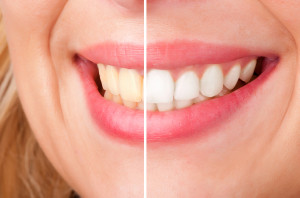


slider-wide-1
slider-wide-2
slider-wide-3
 There are many types of treatments within the sphere of Cosmetic Dentistry.
There are many types of treatments within the sphere of Cosmetic Dentistry.
Some of these treatments include: bonding, porcelain veneers, crowning, grafting, recontouring, gum bleaching, gingivectomy surgery, and straightening.
One of the single most popular cosmetic dentistry treatments is teeth whitening and bleaching. This is a highly sought after procedure and almost 18 billion dollars is spent every year on this in the United States.
What is a tooth whitening process?
The process involves undergoing a procedure that eliminates stains and discolorations from teeth. A whitening process is very popular because it transforms the look of a person’s smile which can transform confidence. There is nothing as gorgeous as a shiny, white smile. Once teeth get stained again or discolored they must be treated with a whitening process again to regain the brightness.
Some common causes of stains and discolorations include things like:
The teeth whitening process is usually effective on extrinsic or surface stains rather than intrinsic stains or those that are on the inside.
Types of whitening
There are two tooth whitening types. There are vital and non-vital whitenings. When teeth that still have nerves go through whitening, they go through vital whitening. Teeth without live nerves like those following a root canal go through non-vital whitening. Bleaching teeth is done when a dentist applies a whitening gel or paste to the surface of teeth. The substance contains a whitening agent like hydrogen peroxide.
A common version of vital tooth whitening involves the use of a gel whitening solution that gets applied to the surface of the teeth. It also contains a form of hydrogen peroxide.
Dental Bleaching
This form of whitening is very common in cosmetic dentistry. Bleaching is a term that refers to the procedure that happens when teeth are given a lighter color than their natural shade. This process makes use of things like carbamide peroxide. The dentist uses a special laser that activates the bleach gel.
Today’s bleaching makes use of modern equipment, but it is truly an ancient practice once used by the Romans. During the ancient times, they used urine and goat milk to brighten teeth.
Whitening Versus Bleaching
There is a difference between the two types of treatments. Whitening gets rid of surface stains and discoloration on the teeth. Bleaching uses chemicals like carbamide peroxide and hydrogen peroxide to get beyond and beneath the surface. This type of treatment can only be used on teeth if they are healthy enough to be whitened beyond their natural color or shade.
 Wisdom teeth grow when a person has become a young adult. The first begins to grow between when a person is of ages of 21 to 23 years old.
Wisdom teeth grow when a person has become a young adult. The first begins to grow between when a person is of ages of 21 to 23 years old.
Wisdom teeth are vestigial molars where they are not necessarily needed. Therefore, if your wisdom teeth grow without any problems, it is not necessary to remove them.
However, since a majority experience extreme pain and discomfort; extraction is the wisest solution.
NOTE: Unnecessary teeth removal is not advised and dentists warn people against it if they are not experiencing problems, discomfort, or pain. It is important to note that removing them is no-guarantee against future problems.
Many people believe that early extraction helps prevent teeth crowding. This is a false belief and unnecessary teeth removal can result in numbness and infections; especially if a nerve is damaged. However, if your wisdom teeth are wedged and creates trouble when growing, then dentists recommend tooth removal. In the case of infections, dentists will have to treat it before performing the surgery.
Before wisdom teeth removal, dentists administer a general or local anesthetic, and then the process begins. Gum tissues around the teeth will have to be opened and any bone covering the teeth. Your dentist may remove the teeth as a whole or break them into pieces for easier removal. After this, tissue around the teeth may be stitched, but antiseptics must be used after the process.
Just like any other surgery, wisdom teeth removal takes time to heal. This makes it susceptible to infections and that is why antibiotics must be used. The time it takes to heal varies from one person to the other; generally depending on aftercare and the health of the patient.
Who Qualifies For Extraction?
There are many factors a dentist will have to take into consideration to determine if you are qualified for extraction. Examples include; awkward angle growth, cysts, infections, and having small jaws that cannot accommodate wisdom teeth. Discomfort, pain, and swelling is another reason to have them removed. In a nutshell, to know if you need wisdom teeth removal, it is wise to consult your dentist.
Advantages Of Extraction
There are many benefits to having wisdom teeth extracted. Some of these include; offer fewer chances of damaging other teeth and jawbone. Avoid discomfort and pain. Avoid swelling, bleeding, and ulcers.
Risks Of Extraction
There are many risks associated with wisdom teeth extraction, even though some do not occur commonly. For example, general anesthesia increases chances of death (even though still low in percentage). Others include nerve damage, gum and face paralysis, dry socket and others.
Aftercare Basics
To guarantee proper healing, aftercare plays a big role. For example, bleeding should not exceed 24 hours after the surgery. If bleeding goes beyond this, call your dentist. Bleeding time can be shortened by avoiding lying flat and laying the head on a pillow.
Just like all post-surgical procedure, one is advised to avoid physical activity and rest for few days. It is important to note that heavy and sudden motions could cause bleeding. At the same time, infections could develop.
Avoid taking tobacco, cold or hot drinks, and foods, touching the area with your tongue or fingers. To prevent ease pain or swelling, consider using a warm compression or ice pack to the jaw. This is a great technique to avoid painkillers or other pain relieving tablets. Ice is a natural remedy used to reduce swelling.